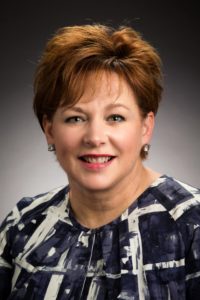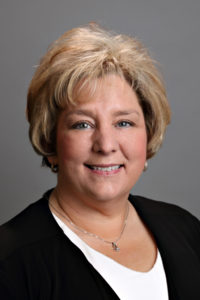

When 28 skilled nursing facilities operated by American Health Communities earned Joint Commission accreditation this spring, they joined a growing number of nursing homes nationwide seeking an extra stamp of approval for their quality and compliance efforts.
The Joint Commission has seen its number of accredited nursing homes climb approximately 70% in the past five years, according to Gina Zimmerman, executive director of the organization’s Nursing Care Center and Assisted Living Community Services.
In 2016, about 600 facilities nationwide had opted into the program, which awards survey-based recognition in three-year cycles. By June 1 of this year, that number jumped to 1,059. Applications, Zimmerman noted, did not decline significantly during the pandemic, which actually may have spurred additional interest.
“Organizations are really depending on the accreditation process to help them manage issues around quality and infection control,” Zimmerman told McKnight’s Long-Term Care News last week. “But one of the primary drivers and factors we’ve seen is significant emphasis around Medicaid value-based purchasing.”
Zimmerman said select health plans are providing bonus payments or incentives if skilled nursing partners achieve accreditation. Meanwhile, she added, some commercial payers—including BlueCross BlueShield of Illinois in the Chicagoland area and BlueCross BlueShield of Massachusetts — are requiring accreditation just to participate in their networks.
Still, for some providers, pursuing accreditation, with its annual cost of about $4,500 per building per year, remains an internal decision meant to drive corporate efficiency and quality efforts.
“They see accreditation as a tool that helps establish a single framework for how they approach quality,” Zimmerman said, adding that the education emphasized by Joint Commission surveyors provides resources and best practices that can support the adoption of improved strategies across companies with 10 sites or 100.
Taking on rigorous process
At American Health Communities, one of seven American Health Partners companies, the main motivation was to demonstrate a commitment to quality to residents, families and referral partners, said Nina Monroe, vice president of quality and clinical operations.

“We’re willing to take the extra steps and go through a really rigorous process, one that we all learn through and are going to be better for in the end,” Monroe said. “It sets us apart. It could transform the culture of our facilities to one that focuses (even more) on quality improvement and patient safety.”
Medicaid VBP rewards for quality achievements were “one of several incentives” for some but, not all, American Health Communities. A company official said eight already had earned the Malcolm Baldridge National Quality Award, which meets Tennessee’s Medicaid VBP standard.
American Health Communities started its journey toward Commission accreditation last August, setting up a team of regional nurses and directors of operations to assess whether the task was achievable during the pandemic, and how much work would need to be done.
Between October and January, 28 facilities completed surveys and earned accreditation, with a final American Health Community expected to complete the process this year after hiring a new director of nursing.
Among the challenges Monroe cited were higher standards than those the Centers for Medicare & Medicaid Services institutes for staff education (with the Commission requiring cultural competency training and knowledge of its National Patient Safety Goals); different expectations for credentialing of medical staff including nurse practitioners, physicians and contracted specialists; and competency testing of clinical professionals, including those administering point-of-care tests.
But Monroe noted that the survey process in each building was informative and supportive, “a 100% positive” experience even for staff who initially dreaded having more surveys.
Collaborative approach
“The (Joint Commission) surveyors are highly qualified and all have an extensive background in long-term care,” she said. “They know the business and the knowledge they shared through the process was one of the best parts.”
Between now and a mid-cycle survey in about 18 months, American Health Communities will have access to a private website with additional resources and an accreditation liaison who can help with standards interpretations or new quality improvement efforts.
Since plastering communities with the Commission’s gold seal emblem (as seen below), Monroe said she already has heard positive feedback from referral partners and families of patients.

Though Joint Commission surveys in nursing homes does not replace state or federal surveys (as is the case in acute care and other settings), Zimmerman added that many providers report better outcomes on CMS surveys after being accredited.
“Our approach is much more consultative, educative and collaborative than what most organizations usually experience through the traditional regulatory approach,” she said. “Ours is very much systems-focused… . If there was a failure or potential failure, how did the organization address it?”
The Joint Commission is also expanding its offerings, with an Assisted Living certification program beginning July 1. American Health Communities also earned two memory care certifications and a post-acute care certification for its West Tennessee Transitional Care facility.
PruittHealth, which announced in March it would require all 91 skilled nursing centers in the Southeast to undergo Joint Commission accreditation, said several of its communities also would seek specialized certifications.




